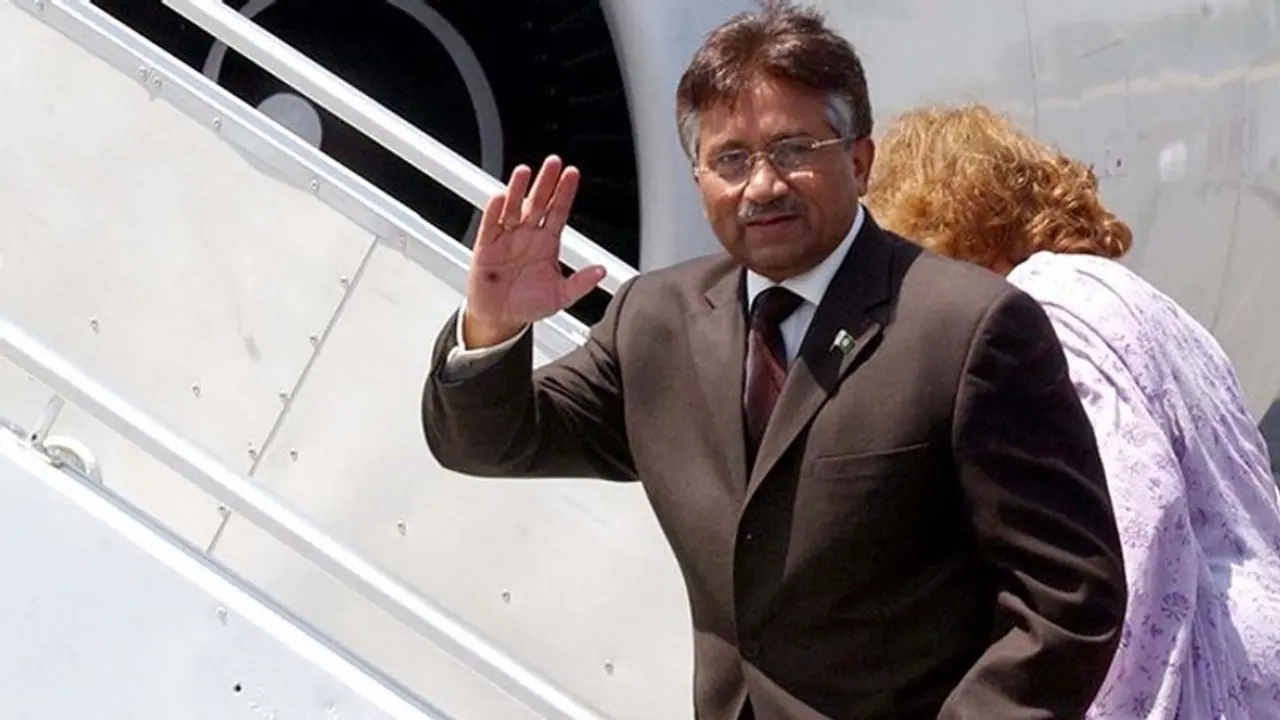The four-star general, Pervez Musharraf, who ruled Pakistan in a dictator style, was born in Delhi, India. During his reign, he engaged with India on many important issues, including Jammu and Kashmir. Checkout the following timeline of his interactions with India,

Pakistan's former military ruler General (retd.) Pervez Musharraf (79), the architect of the Kargil War in 1999, passed away on Sunday, February 5, 2023, in Dubai after a long illness. Musharraf was being treated in a hospital in Dubai. He was diagnosed with amyloidosis, a rare disease in which an abnormal protein accumulates in organs and disrupts normal function. He has been receiving treatment at a hospital in Dubai since 2016.
The four-star general, who ruled Pakistan in a dictator style, was born in Delhi, India. During his reign, he engaged with India on many critical issues, including Jammu and Kashmir. The following is a timeline of his interactions,
1) Musharraf was born in Delhi in August 1943. Following the partition of India in 1947, his family moved to Pakistan.
2) Musharraf enrolled in the Pakistan Military Academy in June 1964.
3) Musharraf, then Chief of Army Staff, led a bloodless military coup in October 1999 that deposed then-Prime Minister Nawaz Sharif and instals himself as the government's Chief Executive.
4) Musharraf announced himself as President of Pakistan following the resignation of the incumbent, Mohammad Rafiq Tarar, in June 2001.
5) Musharraf and then-Indian Prime Minister Atal Behari Vajpayee met in Agra for a two-day summit in July 2001. The summit was called off after two days as there was no progress on Jammu and Kashmir issue between the two parties.
6) A terrorist attack on India's parliament killed 14 people on December 13, 2001. India blamed Pakistan-based terror groups Lashkar-e-Taiba and Jaish-e-Muhammad. Following the attack, India's and Pakistan's militaries massed along the border and the Line of Control. The standoff concluded in October 2002.
7) Musharraf pledged that Pakistan would fight extremism on its own soil in March 2002 but asserted that the country has a right to Kashmir.
8) During a UN General Assembly meeting, Musharraf called for a ceasefire along the Line of Control in September 2003, and India and Pakistan later reached an agreement to reduce tensions and end hostilities across the border.
9) In Islamabad, Vajpayee and Musharraf held direct talks at the 12th SAARC summit in January 2004, and the foreign secretaries of both countries met later that year. This was the beginning of the Composite Dialogue Process, which involves bilateral meetings between officials at various levels of government (including foreign ministers, foreign secretaries, military officers, border security officials, anti-narcotics officials and nuclear experts).
10) On the eve of a visit to Jammu and Kashmir, the new Prime Minister, Manmohan Singh, announced that India would reduce its troop deployment there in November 2004.
11) In September 2006, Musharraf and Singh agreed to establish an institutional anti-terrorism mechanism between India and Pakistan.
12) Musharraf praised former Indian cricket captain MS Dhoni's dynamic batting skills and long hair on November 12, 2006. Dhoni was a young player when India toured Pakistan for a series of One Day Internationals and Test matches. Musharraf famously advised Dhoni against getting a haircut.
(With inputs from PTI)
Also Read: Pervez Musharraf passes away: When former Pak president asked Dhoni not to get a haircut - WATCH
Also Read: Pervez Musharraf passes away: Former Pak President was suffering from amyloidosis; Know all about it
Also Read: Former Pakistan President Pervez Musharraf passes away
